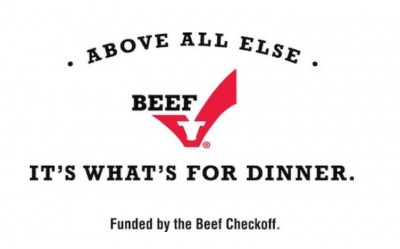Livestock Checkoff Programs 101
Amy Barkley, Team Leader & Livestock Specialist
Southwest New York Dairy, Livestock and Field Crops Program

Livestock Checkoff Programs 101
You may have heard of checkoff programs, but aren't sure exactly what they are, or what they mean to you as a livestock producer. This article sheds some light on the basics.
What's a Checkoff?
Checkoffs are programs developed as acts of Congress. Their purpose is to drive demand for agricultural commodities by funding research, education, and promotion. Some checkoff-funded initiatives that you may be familiar with are, "Pork. The Other White Meat", "Beef. It's What's for Dinner", or "The Incredible, Edible Egg".
Those working for the checkoff are, under no circumstances, allowed to lobby; other organizations that you may be familiar with such as Farm Bureau, National Cattleman's Beef Association, and the National Pork Producers Council do this work independently of checkoff dollars.
What Livestock Commodities are included?
There are currently 22 checkoffs in the US that are overseen by the USDA's Agricultural Marketing Service. Each of the checkoffs are run by a research and promotion board. Those of pertinent to livestock production include The Cattleman's Beef Board, The National Pork Board, American Lamb Board, American Egg Board, and the The National Honey Board.
Who Pays into it?
Producers are required to pay into the checkoff by law based on sales of their commodity. Both domestic producers and importers are required to pay it. Organic commodities are not subject to remitting checkoff dollars, which is the result of a variance that was written into the law to help expand the organic market.
How is the checkoff calculated?
Checkoff calculations are not one size fits all. Each one has different computations, which are listed below. That said, all producers selling these commodities must pay into the checkoff. There are a couple of exemptions listed below.
- Beef: $1 per head sold. This includes both cattle and calves from both beef and dairy operations.
- Pork: $0.35 per $100 of sale price. This includes weaned pigs, feeder pigs, market hogs, and seed stock animals. Each time the animal changes production classes (ie weaned pig to feeder or feeder to market hog), the assessment is collected, with the same producer never being assessed twice for the same animal.
- Lamb: A live weight assessment of $0.007 per pound and a first handler assessment of $0.42 per head. This includes all sheep and lambs of any age, including ewes, rams, feeder and market lambs, breeders, and cull animals.
- Eggs: $0.10 for every 30-dozen case sold. Farmers producing eggs from under 75,000 laying hens can request an exemption from paying assessments.
- Honey: $0.015 per pound. Farmer marketing less than 250,000 pounds of honey a year are exempt.
How do I submit my Checkoff?
Each producer is responsible for submitting their own checkoff dollars each time an animal is sold. Payments are due by the 15th of the month following the transaction. Depending on the checkoff, you can submit a check or use an online secure payment portal. You can go to your respective commodity's website to learn more and pay your checkoff.
Upcoming Events
Cornell Organic Field Crops & Dairy Conference
March 6, 2026
Waterloo, NY
Farmers, researchers, educators, and agricultural service providers from across the Northeast are invited to the 2026 Cornell Organic Field Crops & Dairy Conference, held Friday, March 6, 2026, from 8:00 a.m. to 4:30 p.m. at the Lux Hotel & Conference Center in Waterloo, N.Y.
Co-hosted by New York Soil Health and Cornell CALS, the annual conference brings together leaders in organic grain, dairy, and livestock systems to share practical tools, new research, and farmer-tested strategies to support resilient and profitable organic production.
NY Pork Producers - 2026 Producer Summit & Annual Meeting
March 13 - March 14, 2026
Hamilton, NY
Join NYPP for the 2026 Producer Summit, where producers of all sizes and production styles will explore marketing, branding, selling pork, and current consumer trends through practical sessions designed to help build demand, connect with customers, and add value to their operations.
Mid Atlantic Grain Conference
March 15 - March 16, 2026
We're excited to share that the 2026 Mid‐Atlantic Grain Fair & Grain Conference is coming March 15-16, 2026 in Pennsylvania! This two-day event brings together farmers, millers, bakers, brewers, distillers, researchers, and grain enthusiasts to learn, connect, and celebrate local grains. These events will be offered at two seperate locations.
Announcements
No announcements at this time.





